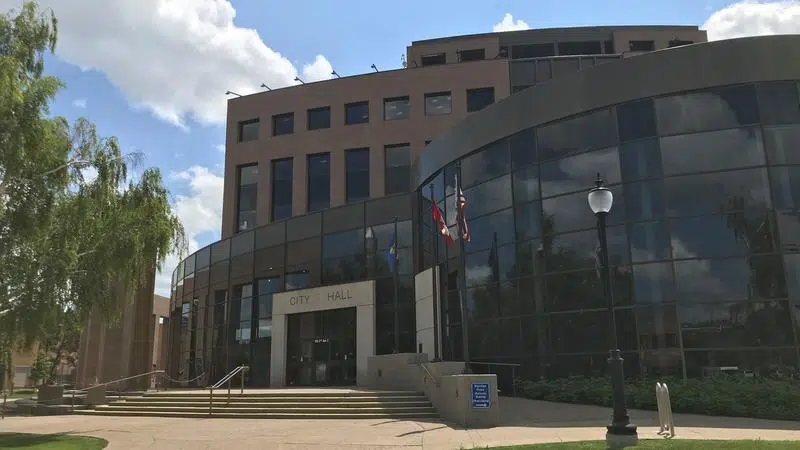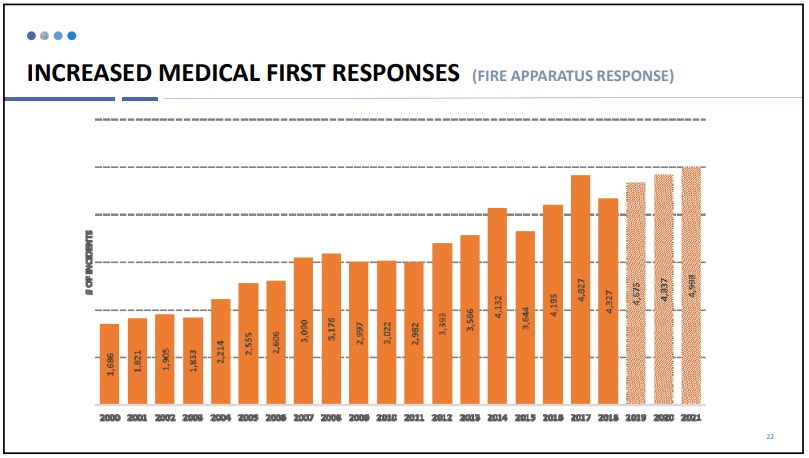
First responders strained from drug crisis, ARCHES says SCS has not impacted crime
LETHBRIDGE, AB – Lethbridge City Council heard from several community experts on opioid use, and how various groups are responding to it.
This includes presentations from Lethbridge Police Service (LPS), Lethbridge Fire & Emergency Services, Alberta Health Services, and ARCHES, the group who operates the city’s Supervised Consumption Site (SCS).
Kelly L’Hirondelle, Deputy Chief of Lethbridge Fire & Emergency Services, reports that medical incidents that required their responses grew by 37.7% from 2009-2019, while those needing a fire apparatus increased by 36% in that same time.
 Calls for service involving fire apparatus’ in Lethbridge. (Supplied by City of Lethbridge)
Calls for service involving fire apparatus’ in Lethbridge. (Supplied by City of Lethbridge)



